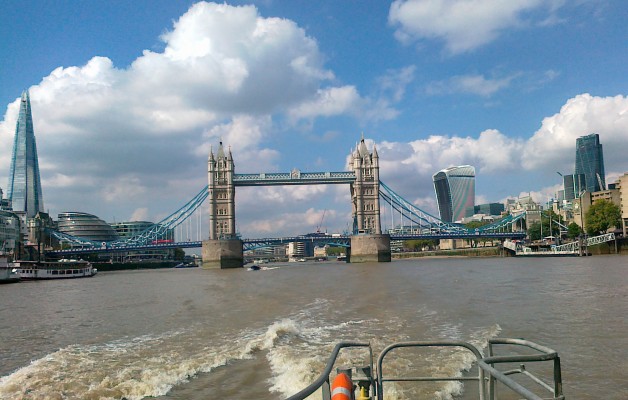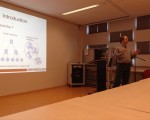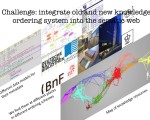Report on the KNOWeSCAPE workshop “Knowledge Maps and Information Retrieval (KMIR)” at Digital Libraries 2014
The workshop “Knowledge Maps and Information Retrieval (KMIR)” was hold at the Digital Libraries 2014 in London, September 11, 2014. Knowledge maps are promising tools for visualizing the structure of large-scale information spaces, but still far away from being applicable for searching. The workshop therefore aimed at bringing together experts in Information Retrieval (IR) and knowledge mapping in order to discuss the potential of interactive knowledge maps for information seeking purposes.
The afternoon event gave floor to one keynote (by Andre Skupin), and 10 presentations spanning a wide range of questions around knowledge maps to be implemented in search engines used in Digital Libraries. Andre Skupin emphasized that mapping is about transformation, not a one-to-one representation, and that topographic mapping has as objective to immerse yourself in a space. An overview of such principles and their long history has been already compiled at the beginning of the 20ths century he said and referred to Zondervan, H. (1901). Allgemeine Kartenkunde: Ein Abriss ihrer Geschichte und ihrer Methoden. Leipzig: B.G. Teubner. The core of his presentation was an enterprise to create bodies of knowledge – those complete sets of concepts for a field or area which can be found in handbooks or textbooks.
What followed was a search into best way’s to create knowledge maps from different kind of data by different kind of visualization methods and metaphors, such as graph visualization of relational data (e.g. citation chains), radial histograms of multi-faceted data, or visualization of knowledge structures by Memory Islands. One thread through the presentations was to provide the user with an overview. Another shared topic concerned issues of design – fonts, colors, use of the space. The more we are exposed to visual input, the more design determines if we start to engage with an interface at all. Principles of data mining behind the ‘maps’ remain the crucial. “You don’t need a map anymore for geographic Information Retrieval” said Andre Skupin, “what is important is the interference machine in the back. The display of its results is a rather secondary problem.”
The fruitful discussion round at the end of the workshop turned out that for pushing the implementation of knowledge maps in Digital Libraries test beds, user studies and evaluations are strongly needed. A bridge between Information Retrieval, Information Studies and Information Visualization would be a first step to activate a community to join forces for the implementation of knowledge maps in Digital Libraries.
Peter Mutschke





